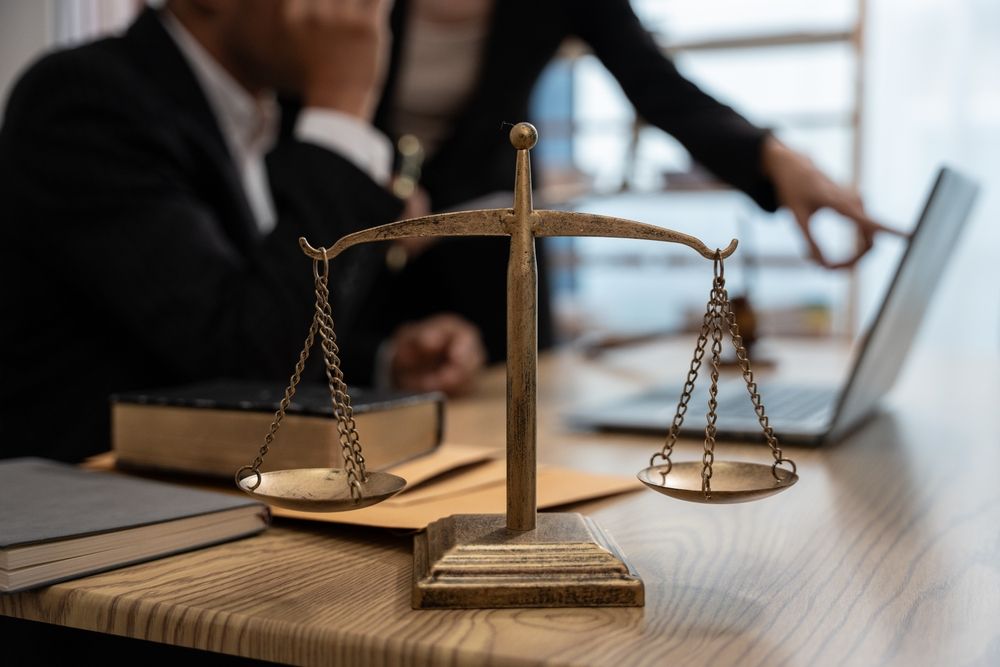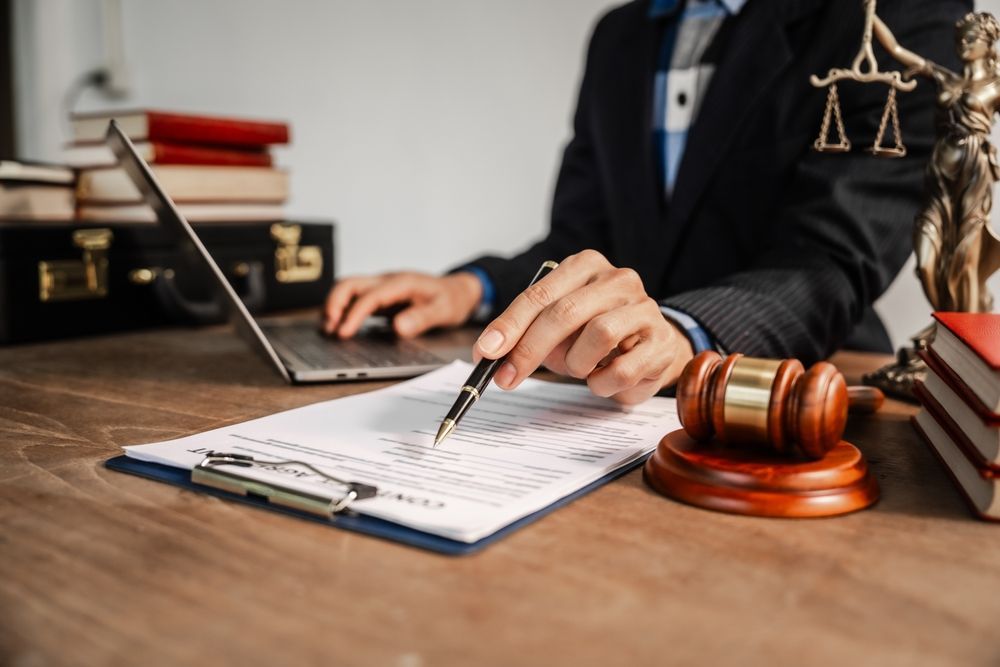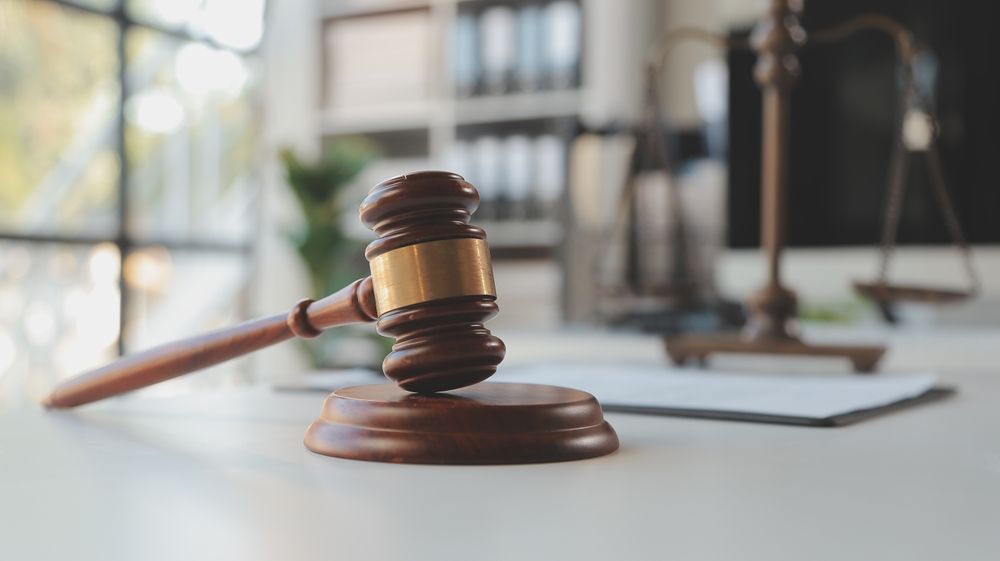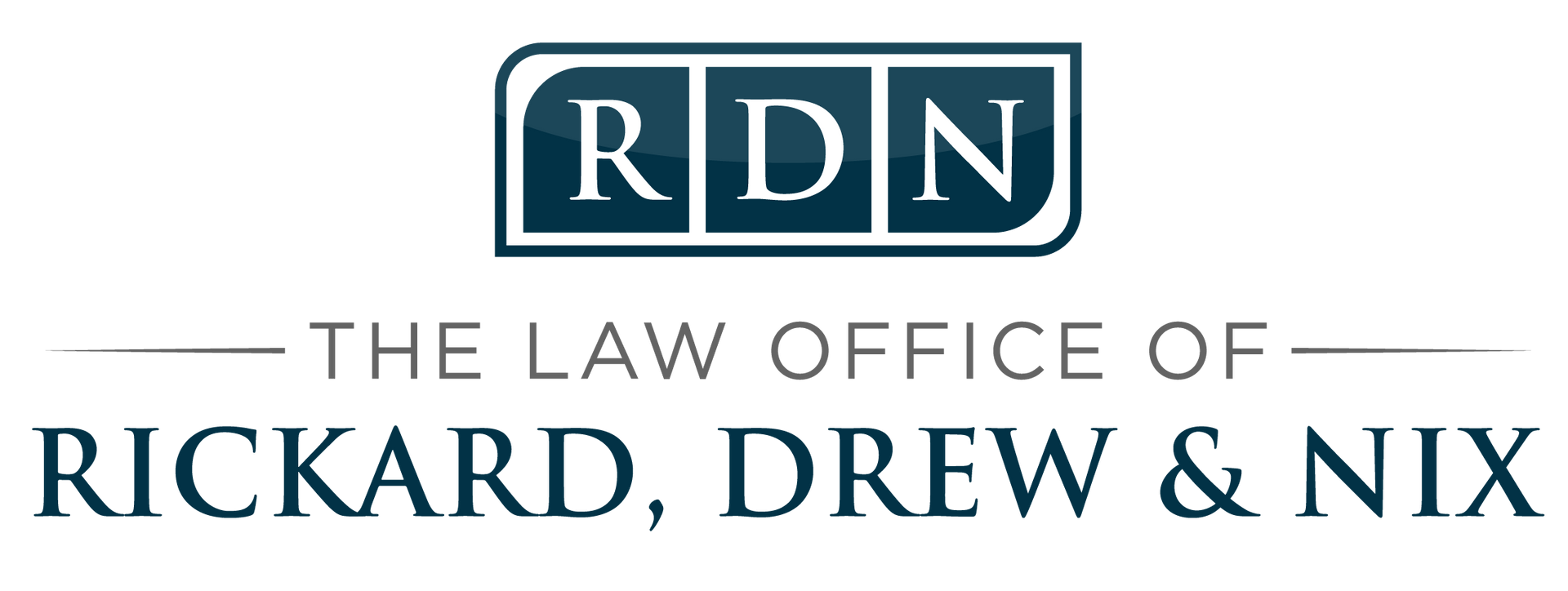Understanding Your Rights in Atlanta Truck Accident Cases
Being involved in a traffic accident with a big rig truck can be life-changing for victims. Severe injuries are all too common. Due to the sheer size and weight of trucks compared to a typical car, property damage is almost always catastrophic. Knowing how to get restitution and your life back on track becomes job number one for truck accident victims. Understanding Georgia law and how an expert attorney can help is a good place to start.
Truck accidents in Atlanta can lead to serious injuries, including spinal cord injuries, and often leave victims unsure of their rights. Understanding who is at fault and how to navigate the legal system is crucial for securing a fair verdict. This article will cover common causes of truck accidents, the complexities of liability, and the steps to take immediately after an accident. By reading this content, victims will gain valuable insights into their rights and how to pursue compensation effectively, addressing the pain points of confusion and uncertainty in the aftermath of a traffic accident.
Common Causes of Truck Accidents in Atlanta
Driver fatigue significantly contributes to truck accidents in Atlanta, impacting reaction times and decision-making. Equipment failure and maintenance issues can also lead to serious incidents. Additionally, improper loading of cargo can create hazards on the road. Violations of traffic laws in Georgia, along with adverse weather and road conditions, further increase the risk of accidents. Understanding these factors is essential for those pursuing car accident claims, especially when dealing with injuries such as spinal cord damage.
Driver Fatigue and Its Impact
Driver fatigue is a leading cause of truck accidents in Atlanta, significantly affecting the ability of drivers to react quickly and make sound decisions. When truck drivers operate their vehicles while tired, their performance can be comparable to that of individuals under the influence of alcohol, similar to cases involving drunk driving. This impairment can lead to devastating accidents, leaving car accident victims with serious injuries and complicated legal battles to navigate.
In Georgia, the statute regarding truck driver hours of service aims to mitigate the risks associated with fatigue. However, violations of these regulations can still occur, resulting in accidents that may require the testimony of a witness to establish liability. For those affected by such incidents, understanding their rights and the legal framework surrounding Georgia car accident cases is crucial for pursuing fair compensation and justice.
Equipment Failure and Maintenance Issues
Equipment failure and maintenance issues are significant contributors to truck accidents in Atlanta. When trucks are not properly maintained, critical components such as brakes, tires, and lights can fail, leading to dangerous situations on the road. Victims of such accidents may experience severe distress, and understanding the role of equipment failure in their case is essential for pursuing a car accident claim.
In many instances, the testimony of a qualified mechanic or expert can help establish the link between equipment failure and the accident. This evidence can be crucial in Atlanta car accident cases, as it may demonstrate negligence on the part of the trucking company or driver. Victims should be aware of their rights and the importance of gathering evidence related to maintenance records to strengthen their claims and seek fair compensation for their injuries.
Improper Loading of Cargo
Improper loading of cargo is a critical factor that can lead to truck accidents in Atlanta. When cargo is not secured correctly, it can shift during transport, causing the truck to become unstable and increasing the risk of accidents. This instability can result in serious injuries for accident victims, making it essential for those affected to understand their rights and the potential for a truck accident settlement based on the negligence of the trucking company or driver.
Violation of Traffic Laws in Georgia
Violations of traffic laws in Georgia are a significant factor contributing to truck accidents. When truck drivers engage in reckless behaviors, such as speeding or driving under the influence, they increase the risk of serious accidents. These violations can lead to legal liability for the driver and the trucking company, making it essential for plaintiffs to understand how these laws apply to their cases.
In the aftermath of a truck accident, establishing the role of traffic law violations can be crucial for victims seeking compensation. Evidence such as police reports and witness statements can help demonstrate negligence, which is vital for holding the responsible parties accountable. By understanding their rights and the legal framework surrounding these violations, plaintiffs can better navigate the complexities of their claims and pursue the justice they deserve.
Weather and Road Conditions Affecting Safety
Weather and road conditions play a significant role in truck accidents in Atlanta, impacting overall safety. Rain, fog, and ice can reduce visibility and traction, making it difficult for truck drivers to maintain control of their vehicles. When accidents occur under these conditions, victims may face challenges in their personal injury law claims, especially if they require physical therapy or have lost wages due to their injuries.
Additionally, poor road conditions, such as potholes or debris, can contribute to accidents, leading to serious injuries for those involved. In cases where a truck accident results from adverse weather or unsafe road conditions, understanding the legal implications is crucial. Victims may need to gather evidence, such as accident reports and witness statements, to support their claims, particularly if they are dealing with a hit and run situation.
Understanding Liability in Atlanta Truck Accidents
Determining liability in truck accident cases involves assessing fault among multiple parties, including truck drivers, trucking companies, and manufacturers of defective parts. Each party has a duty of care that, if breached, can lead to serious accidents. Additionally, government entities may be liable for inadequate road maintenance. Understanding comparative negligence under Georgia law is essential for victims seeking compensation while navigating the complexities of their rights.
Determining Fault Among Multiple Parties
Determining fault in a Georgia truck accident often involves multiple parties, including the truck driver, the trucking company, and even manufacturers of defective parts. Each party has a responsibility to ensure safety on the road, and if any of these parties breach that duty, they may be held liable for the resulting damages. A skilled lawyer can help victims navigate the complexities of these cases, ensuring that all responsible parties are identified and held accountable during a trial.
In some instances, the actions of a truck driver may be influenced by the policies of their employer, which can complicate liability. For example, if a trucking company pressures drivers to meet unrealistic deadlines, this could contribute to reckless driving behaviors. Understanding how these dynamics play out is crucial for victims seeking a fair judgment in their Georgia truck accident claims, as it can significantly impact the outcome of their case.
The Role of Trucking Companies in Accidents
Trucking companies play a crucial role in accidents, as they are responsible for ensuring their drivers adhere to safety regulations and maintain their vehicles properly. When a trucking company fails to provide adequate training or pressures drivers to meet unrealistic deadlines, it can lead to reckless behavior on the road. Victims of truck accidents may seek financial compensation for their injuries, and understanding the responsibilities of these companies is essential for asserting their rights in legal proceedings.
In cases where a trucking company's negligence contributes to an accident, victims may also explore claims for intentional infliction of emotional distress, especially if the incident resulted in severe psychological trauma. The Supreme Court of Georgia has established precedents that can influence how these cases are handled, emphasizing the importance of holding trucking companies accountable. By recognizing their rights and the potential for legal action against these companies, victims can better navigate the complexities of their claims and pursue the compensation they deserve.
Manufacturer Responsibility for Defective Parts
Manufacturers hold a significant responsibility when it comes to the safety of truck parts, such as brakes. If a defective brake leads to an accident, victims may pursue accident claims against the manufacturer for negligence. In court, establishing the link between the defective part and the accident is crucial, as it can demonstrate the manufacturer's failure to meet safety standards, which can add stress to the legal process for those affected.
In cases involving defective parts, the principles of premises liability may also come into play, particularly if the manufacturer failed to ensure that their products were safe for use. Victims should gather evidence, such as maintenance records and expert testimonies, to support their claims. Understanding the manufacturer's role in the accident can empower victims to seek the compensation they deserve for their injuries and losses.
Government Liability for Road Maintenance
Government entities can be held liable for accidents caused by poor road maintenance, which may lead to serious injuries or disabilities for victims. If a road is not properly maintained, such as having potholes or inadequate signage, it can create hazardous conditions for truck drivers and other motorists. In such cases, a jury may need to determine the extent of the government's negligence and its role in the accident, which can significantly impact the compensation awarded to the injured party.
To establish government liability, victims often require the testimony of an expert who can assess the road conditions and provide evidence of negligence. A judge may consider this expert testimony alongside other factors, such as maintenance records and accident reports, to evaluate the case. Understanding the legal framework surrounding government liability is essential for victims seeking justice and compensation for their injuries and property damage resulting from truck accidents in Atlanta.
Comparative Negligence Under Georgia Law
Under Georgia law, comparative negligence plays a crucial role in determining liability in truck accident cases. This legal principle allows for the allocation of fault among all parties involved, meaning that if a victim is found partially responsible for the accident, their compensation may be reduced accordingly. For instance, if a victim was not wearing a seatbelt at the time of the accident, this could impact their claim, similar to how a slip and fall case might be affected by the victim's actions. Understanding this concept is essential for individuals navigating the complexities of their insurance policy and seeking fair compensation for their injuries.
In the context of truck accidents, negotiation becomes vital when discussing liability and compensation. Victims must be prepared to present evidence that supports their claim while also addressing any potential disclaimers that may arise from their own actions. For example, if a victim's income was affected due to their partial fault in the accident, this could influence the settlement discussions with the trucking company’s insurance provider. By grasping the nuances of comparative negligence, victims can better advocate for their rights and work towards achieving a just outcome in their case.
Navigating Atlanta's Legal System for Truck Accidents
Navigating the legal process for truck accident cases in Atlanta involves several critical steps. Victims must file a claim within Georgia's statute of limitations, gather and preserve crucial evidence, and deal effectively with insurance companies. Understanding the legal framework for personal injury lawsuits, including what to expect in court proceedings, is essential for those seeking compensation for pain and suffering resulting from highway accidents.
Filing a Claim Within Georgia's Statute of Limitations
In Georgia, victims of truck accidents must file their claims within a specific statute of limitations, typically two years from the date of the accident. This timeframe is crucial, as failing to file within this period can result in losing the right to seek compensation for injuries and damages. Understanding this timeline is essential for those involved in truck accident cases, especially when dealing with complex issues such as distracted driving or liability insurance claims.
To effectively navigate the legal process, victims should gather all relevant evidence, including police reports and medical records, as soon as possible. This documentation can be vital in establishing liability and supporting claims for compensation. By being proactive and aware of the statute of limitations, individuals can better protect their rights and ensure they have the opportunity to pursue justice in their truck accident case.
Gathering and Preserving Crucial Evidence
Gathering and preserving crucial evidence is vital for individuals involved in truck accident cases in Atlanta. This evidence can include photographs of the accident scene, witness statements, and police reports, all of which play a significant role in establishing liability. An attorney can assist victims in collecting this information promptly, ensuring that it remains intact and usable, especially in cases where comparative negligence may be a factor in determining fault.
In the aftermath of a truck accident, victims should act quickly to document all relevant details. For instance, obtaining the truck driver's information and any available dashcam footage can strengthen a case significantly. If the case progresses to an appeal, having well-preserved evidence will be essential for supporting claims and navigating the complexities of the legal system effectively.
Dealing With Insurance Companies Effectively
Dealing with insurance companies effectively is crucial for individuals pursuing a truck accident claim. Insurance adjusters often exhibit behavior aimed at minimizing payouts, which can complicate personal injury cases. Victims should be prepared to present clear evidence of their injuries, including documentation of pain and any loss of consortium, to support their claims and ensure they receive fair compensation.
It is essential for victims to remain calm and composed when communicating with insurance representatives. They should avoid making statements that could be misinterpreted or used against them later. Seeking the guidance of an experienced attorney can help individuals navigate these discussions, ensuring that their rights are protected and that they are not pressured into accepting inadequate settlements for their truck accident claims.
The Legal Process for Personal Injury Cases
The legal process for personal injury cases, particularly in truck accidents, begins with a thorough evaluation of the circumstances surrounding the incident. Victims must gather evidence, such as police reports and medical records, to support their claims of suffering and establish liability. This initial assessment is crucial for determining the strength of the case and the potential for compensation in car accident cases.
What to Expect in Court Proceedings
In court proceedings for truck accident claims, victims can expect a structured process that begins with the presentation of evidence. This includes testimonies from witnesses, expert opinions, and documentation related to the accident, such as police reports and medical records. Understanding the regulations governing these proceedings is essential, as it helps victims navigate the complexities of their case and prepare for potential settlement discussions.
During the trial, both parties will present their arguments, and the judge or jury will evaluate the evidence to determine liability and compensation. Victims should be aware of the potential fees associated with legal representation, as these can vary based on the complexity of the case. By being informed about what to expect in court, individuals can better advocate for their rights and work towards achieving a fair settlement for their injuries and losses resulting from the truck accident.
Your Rights to Compensation After a Truck Accident
Victims of truck accidents in Atlanta have specific rights to compensation that address various aspects of their losses. This includes recovering medical expenses and future care costs, claiming lost wages and earning capacity, and seeking damages for pain and suffering. Additionally, compensation for property damage is essential, along with understanding punitive damages under Georgia law. Each of these topics highlights the importance of addressing negligence and the policies set forth by the Federal Motor Carrier Safety Administration to ensure fair compensation for affected individuals.
Recovering Medical Expenses and Future Care Costs
Victims of truck accidents in Atlanta have the right to recover medical expenses related to their injuries. This includes costs for hospital stays, surgeries, rehabilitation, and ongoing care. Understanding how to document these expenses is crucial for building a strong car accident case, as it allows attorneys to effectively advocate for fair compensation on behalf of their clients.
Future care costs are also an important consideration in truck accident claims. If injuries sustained in an accident require long-term treatment or specialized care, victims may be entitled to compensation that covers these future expenses. By working with experienced attorneys, individuals can ensure that all aspects of their medical needs are addressed, providing them with the financial support necessary for recovery after an Atlanta auto accident.
Claiming Lost Wages and Earning Capacity
Victims of truck accidents in Atlanta have the right to claim lost wages and earning capacity as part of their compensation. When injuries prevent individuals from returning to work, they may face significant financial challenges. Understanding how to document these losses is essential, as it allows victims to advocate for fair compensation that reflects their situation, including any punitive damages that may arise from the negligence of the responsible party, such as drowsy driving.
To effectively claim lost wages, victims should gather evidence such as pay stubs, tax returns, and medical records that demonstrate their inability to work. Additionally, calculating the percentage of lost income and potential future earnings can strengthen their case. By leveraging their knowledge of the legal process and working with experienced attorneys, individuals can ensure they receive the compensation they deserve for their lost wages and diminished earning capacity following a truck accident.
Seeking Damages for Pain and Suffering
Seeking damages for pain and suffering after a truck accident in Atlanta is a critical aspect of pursuing compensation. Victims may experience significant emotional distress and physical pain due to their injuries, which can impact their quality of life. Understanding how regulatory compliance affects commercial vehicle operations can help victims establish the negligence of the trucking company, strengthening their claims for pain and suffering.
In cases where injuries lead to long-term consequences, such as chronic pain or psychological trauma, victims may also consider filing a wrongful death claim if the accident results in a fatality. Engaging with an attorney for a free case evaluation can provide valuable insights into the potential for recovering damages related to pain and suffering. By addressing these issues, victims can better navigate the complexities of their motor vehicle accident claims and work towards obtaining the compensation they deserve.
Compensation for Property Damage
Victims of truck accidents in Atlanta have the right to seek compensation for property damage resulting from the incident. This includes damages to vehicles, personal belongings, and any other property affected by the accident. Understanding the extent of these damages is crucial, as it allows victims to accurately assess their losses and pursue appropriate compensation through their insurance or legal claims.
To effectively claim property damage, individuals should gather all relevant documentation, including photographs of the damage and repair estimates. Maintaining a detailed medical record of any health care received due to the accident can also support claims for damages. By presenting clear evidence of property loss, victims can strengthen their case and ensure they receive fair compensation for their losses following a truck accident.
Understanding Punitive Damages in Georgia
Punitive damages in Georgia serve as a form of financial compensation awarded to victims in truck accident cases when the responsible party's actions are found to be particularly reckless or intentional. These damages go beyond mere compensation for losses and aim to punish the wrongdoer while deterring similar behavior in the future. For instance, if a truck driver was found to be driving under the influence or grossly negligent, the court may impose punitive damages to reflect the severity of their actions.
Understanding the criteria for punitive damages is essential for victims seeking justice after a truck accident. In Georgia, the plaintiff must demonstrate that the defendant acted with willful misconduct, malice, or a complete disregard for the safety of others. This legal standard emphasizes the importance of gathering strong evidence, such as witness testimonies and accident reports, to support claims for punitive damages. By recognizing the potential for these damages, victims can better advocate for their rights and pursue the compensation they deserve in their truck accident cases.
Steps to Take Immediately After a Truck Accident
After a truck accident in Atlanta, it is essential to take specific steps to protect one's rights and ensure safety. This includes ensuring safety and seeking medical attention, reporting the accident to law enforcement, documenting the scene, and collecting information. Victims should also notify their insurance provider promptly and consult an Atlanta truck accident attorney for guidance. Each of these actions plays a crucial role in building a strong case and securing fair compensation.
Ensuring Safety and Seeking Medical Attention
After a truck accident in Atlanta, ensuring safety is the first priority. Victims should assess their surroundings and move to a safe location if possible, away from oncoming traffic. This immediate action helps prevent further injuries and allows for a clearer assessment of the situation.
Seeking medical attention is crucial, even if injuries seem minor at first. Many injuries, such as concussions or internal damage, may not be immediately apparent. Prompt medical evaluation not only addresses health concerns but also creates essential documentation for any future personal injury claims related to the truck accident.
Reporting the Accident to Law Enforcement
Reporting the accident to law enforcement is a critical step after a truck accident in Atlanta. This action not only ensures that a formal record of the incident is created but also helps establish the facts surrounding the accident. Law enforcement officers can document the scene, gather witness statements, and create an official accident report, which can be vital for any future personal injury claims.
Victims should be aware that the police report can serve as a key piece of evidence when pursuing compensation for injuries and damages. It provides an objective account of the accident, which can clarify liability and support claims against the responsible parties. By promptly reporting the accident, victims can strengthen their case and better navigate the complexities of the legal process in Atlanta truck accident cases.
Documenting the Scene and Collecting Information
Documenting the scene of a truck accident is a critical step for victims seeking to protect their rights and build a strong case. Individuals involved in the accident should take photographs of the vehicles, road conditions, and any visible injuries. This visual evidence can be invaluable when establishing liability and supporting claims for compensation in Atlanta truck accident cases.
Collecting information from all parties involved is equally important. Victims should obtain contact details, insurance information, and statements from witnesses at the scene. This information can help clarify the circumstances of the accident and strengthen the victim's position when pursuing legal action or negotiating with insurance companies.
Notifying Your Insurance Provider Promptly
Notifying your insurance provider promptly after a truck accident is essential for protecting your rights and ensuring a smooth claims process. This notification should occur as soon as possible, ideally within 24 hours of the incident, to avoid any complications that could arise from delays. Insurance companies often require timely reporting to assess the situation accurately and begin the investigation, which can significantly impact the outcome of any claims related to injuries or property damage.
When contacting the insurance provider, victims should provide clear and concise information about the accident, including the date, time, location, and any details regarding injuries sustained. This initial communication sets the stage for the claims process and helps establish a record of the incident. By being proactive and thorough in their reporting, individuals can better navigate the complexities of their truck accident case and work towards securing the compensation they deserve for their losses.
Consulting an Atlanta Truck Accident Attorney
Consulting an Atlanta truck accident attorney is a crucial step for victims seeking to understand their rights and navigate the complexities of their case. An experienced attorney can provide valuable insights into the legal process, helping clients gather necessary evidence and build a strong claim for compensation. By having a knowledgeable advocate, victims can focus on their recovery while ensuring that their legal rights are protected.
Moreover, an attorney can assist in negotiating with insurance companies, which often aim to minimize payouts. They can help victims articulate their needs and ensure that all aspects of their injuries, including medical expenses and lost wages, are adequately addressed. Engaging with a skilled truck accident attorney can significantly enhance the chances of achieving a favorable outcome in the pursuit of justice and compensation.
How an Atlanta Truck Accident Attorney Can Assist You
An Atlanta truck accident attorney plays a vital role in ensuring victims understand their rights and navigate the complexities of their cases. They conduct thorough accident investigations to gather essential evidence, negotiate with insurance companies on behalf of clients, and represent them in legal proceedings. By maximizing potential compensation and providing guidance throughout the legal process, these attorneys help victims secure the justice they deserve.
Conducting a Thorough Accident Investigation
Conducting a thorough accident investigation is essential for an Atlanta truck accident attorney to build a strong case for their clients. This process involves gathering critical evidence, such as police reports, witness statements, and photographs of the accident scene. By meticulously analyzing these details, the attorney can establish liability and demonstrate how negligence contributed to the accident, which is vital for securing fair compensation for victims.
Additionally, an experienced attorney will often consult with accident reconstruction experts to gain deeper insights into the circumstances surrounding the crash. This expertise can reveal important factors, such as vehicle speed and road conditions, that may not be immediately apparent. By leveraging this information, the attorney can effectively advocate for their clients, ensuring that all aspects of the case are thoroughly examined and presented in a compelling manner.
Negotiating With Insurance Companies on Your Behalf
Negotiating with insurance companies can be a daunting task for victims of truck accidents in Atlanta. An experienced Atlanta truck accident attorney understands the tactics that insurance adjusters often use to minimize payouts. By having a skilled advocate on their side, victims can ensure that their rights are protected and that they receive fair compensation for their injuries and damages.
Attorneys are well-versed in the complexities of insurance policies and can effectively communicate the full extent of a victim's losses. They gather necessary documentation, such as medical records and accident reports, to present a strong case to the insurance company. This thorough preparation not only strengthens the negotiation position but also helps victims avoid settling for less than they deserve, ensuring that they are compensated for both immediate and long-term needs following a truck accident.
Representing You in Legal Proceedings
An Atlanta truck accident attorney plays a crucial role in representing victims during legal proceedings. They understand the complexities of personal injury law and can effectively present evidence to support the victim's case. By leveraging their expertise, attorneys can navigate the court system, ensuring that all necessary documentation is filed correctly and on time, which is essential for a successful outcome.
During court proceedings, the attorney advocates for the victim's rights, presenting compelling arguments and evidence to establish liability. They can cross-examine witnesses and challenge the opposing party's claims, which is vital in truck accident cases where multiple parties may be involved. This representation not only helps victims feel supported but also increases their chances of receiving fair compensation for their injuries and losses.
Maximizing Your Potential Compensation
Maximizing potential compensation after a truck accident in Atlanta requires a thorough understanding of the legal landscape and the specific damages available. An experienced Atlanta truck accident attorney can assess the full extent of a victim's injuries, including medical expenses, lost wages, and pain and suffering. By gathering comprehensive evidence and documentation, the attorney can build a strong case that highlights the impact of the accident on the victim's life, ensuring that all relevant factors are considered in the compensation process.
Additionally, an attorney can negotiate effectively with insurance companies, which often attempt to minimize payouts. By presenting a well-documented claim that includes medical records, accident reports, and expert testimonies, the attorney can advocate for a fair settlement that reflects the true costs of the victim's injuries. This proactive approach not only increases the likelihood of receiving adequate compensation but also alleviates the stress of navigating the legal system, allowing victims to focus on their recovery.
Providing Guidance Throughout the Legal Process
An Atlanta truck accident attorney provides essential guidance throughout the legal process, ensuring that victims understand their rights and the steps they need to take. From the initial consultation to the resolution of the case, these attorneys help clients navigate complex legal frameworks, including filing deadlines and evidence requirements. Their expertise allows victims to focus on recovery while feeling confident that their legal interests are being protected.
Moreover, an attorney can clarify the intricacies of personal injury law, helping clients comprehend the implications of comparative negligence and liability. By offering personalized advice tailored to each case, they empower victims to make informed decisions regarding their claims. This support is crucial for individuals facing the challenges of pursuing compensation for injuries sustained in truck accidents, as it enhances their chances of achieving a favorable outcome.

Attorney Jessica Nix, Managing Partner
Jessica Nix is Managing Partner and a Personal Injury Attorney at the Law Office of Rickard, Drew & Nix in Atlanta, with more than 10 years of experience representing injury victims in courts across Metro Atlanta. She graduated cum laude from the University of Georgia School of Law, where she served as an editor of the Journal of Intellectual Property Law. Jessica is admitted to the State Bar of Georgia, is a member of the Georgia Trial Lawyers Association, and was named a Georgia Super Lawyers Rising Star for Personal Injury from 2017 to 2019. To speak with the Law Office of Rickard, Drew & Nix, schedule a free consultation today.



